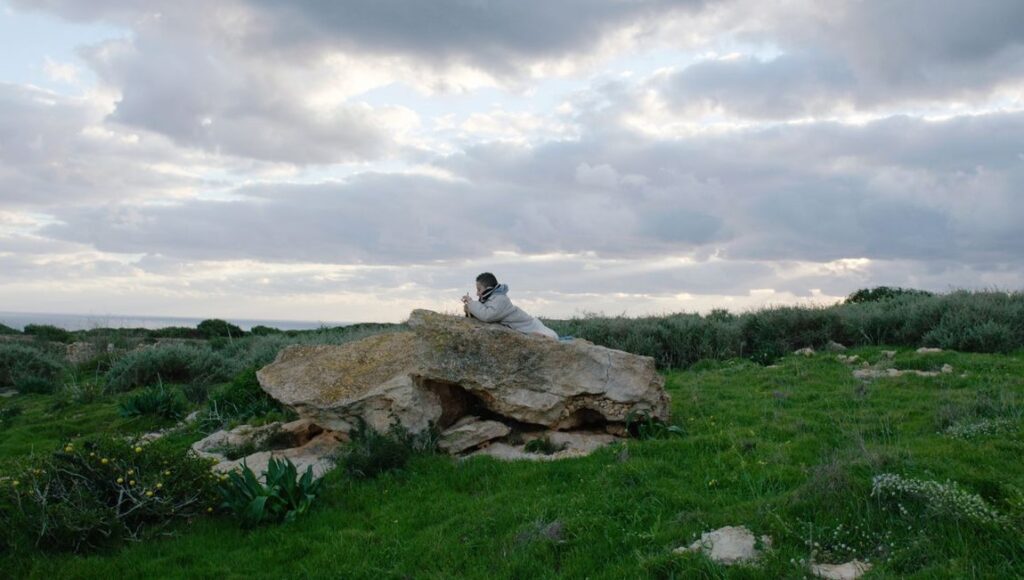An angry juxtaposition structures Gianfranco Rosi’s migrant crisis documentary Fire at Sea. Rather than focus solely on the struggles of refugees as they cross the Mediterranean to Lampedusa, Rosi uses the bulk of his film to observe the mundane life of that Sicilian island’s inhabitants. By spending time with a young boy with a lazy eye—a sublime literalist metaphor—and a doctor often called upon to help new arrivals, while only occasionally punctuating the quotidian rhythm with images of migrant strife, Fire at Sea makes clear its point that the horrors faced at sea go largely unnoticed by the locals and the world at large. Despite the subject matter, the sea Rosi captures is rarely turbulent: Instead, scenes of death and sickness play out atop serene waters, intercut with breathtaking undersea photography. The sea is, after all, a life source for the local population—who thrive off fishing—and a means of escape for refugees from war-torn parts of the world. And yet, as one migrant recounts his journey to Lampedusa, he recalls that, though 90 boarded the boat, only 30 survived the journey. Rosi seeks not only to increase awareness of the crisis but to indict ignorance and functional indifference to it. As the doctor says, most assume that he would have gotten used to seeing the bodies after a while. For Fire at Sea, that assumption—incorrect though it is—points to an attitude that allows the crisis to continue.
Published as part of Toronto International Film Festival 2016 | Dispatch 2.


Comments are closed.